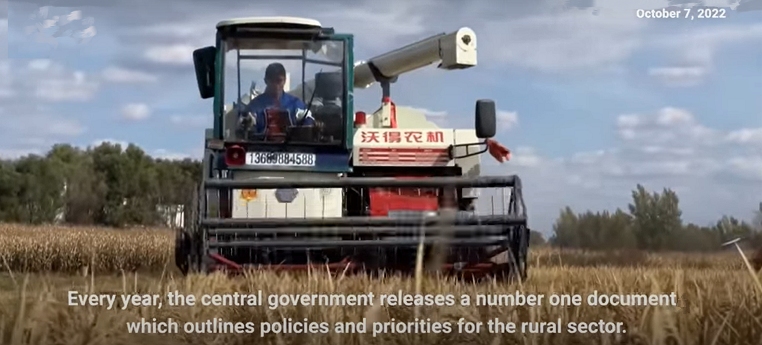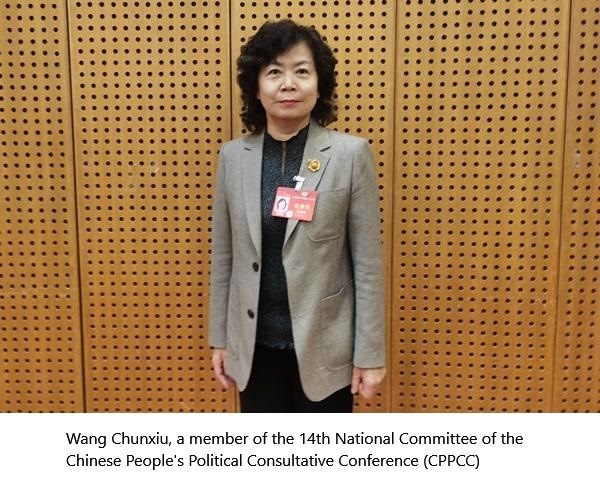
Beijing’s pledge to keep China’s “rice bowl” firmly in the hands of its people has been backed with numerous actions, including the protection of arable land, expansion of farming acreage and more widespread use of technology.
The South China Morning Post points out that seed industry is deemed to be “strategic and fundamental”, and the vitalisation of seeds is a major feature of the country’s quest to ensure its food security. It is seen as the “chips” of agriculture – a form of intellectual property (IP) that is essential for preserving the food security of China’s 1.4 billion people.
The country’s Seed Law, which went into effect in March 2022, was implemented to address “choke points” created by a dependence on international imports and a lack of innovative breeding technologies.
The law pledges to keep the country’s germplasm resources “independent and controllable”. Government officials had previously sounded the alarm about “over-reliance” on seed imports from major exporters like the United States last year.
The Seed Law mandates the protection of IP rights in the seed industry, such as expanding protective mechanisms for new plant variety rights, establishing the Essential Derivation Variety system and improving the rights infringement compensation system.
After an eight-month round of inspections organised by the Standing Committee of the National People’s Congress, the country’s highest legislative body, several areas of focus have been enumerated for the sector. In particular, efforts will be made to solve the major choke point – the lack of technologies to develop high-quality seeds – by making breakthroughs in genome editing, genomic selection and artificial intelligence
A national political advisor has called for a stronger push for China’s seed enterprises to expand globally and improve their overall international competitiveness.

China News reports that Wang Chunxiu, a member of the 14th National Committee of the Chinese People’s Political Consultative Conference (CPPCC), underscored the seed industry’s strategic importance for national food security, a priority shared by countries worldwide. She highlighted the action plan for enhancing the seed industry, approved by the Central Committee for Deepening Overall Reform in 2021, and its inclusion in the “No. 1 central document” for three consecutive years.
After years of effort, China’s agricultural germplasm resource banks and seed industry patents have reached global leadership positions, with breakthroughs in biological breeding technologies that have ended foreign monopolies and supported the seed sector’s development and agricultural production needs. Chinese seed enterprises have expanded their international cooperation and influence, with crop seed exports increasing to $260 million in 2022, up 10% from 2020.
Yet, due to a challenging international environment and discriminatory practices by Western countries, cooperation and trade between Chinese and foreign seed companies have experienced disruptions. This led to a notable drop in China’s seed exports to countries and regions such as Europe, America, Japan and South Korea in 2023.
“Looking at the development paths of international seed industry giants, exploring the global market is an essential route for seed enterprises to grow and compete,” said Wang, also a standing member of the Central Committee of the China Association for Promoting Democracy.
In her proposal to the ongoing CPPCC session, Wang recommended enhancing guidance and support for Chinese seed enterprises aiming to expand globally. She urged relevant industry departments to leverage the Belt and Road Initiative, conduct international market research, and further deepen industry planning for the international entry of Chinese seed enterprises. This includes providing policy support, facilitating stable international market entry, mitigating overseas risks, and securing long-term global success for China’s seed industry.
She also suggested that qualified seed enterprises establish overseas facilities to leverage China’s advanced breeding technology, reduce transportation and time costs, and improve market proximity and customer service. Local labor can further reduce costs while boosting employment and economic growth in host countries and along the Belt and Road. Furthermore, these facilities would promote Chinese seed technology brands, expand their global influence, and create a win-win situation, enhancing China’s competitive edge in the international seed market.
Additionally, she urged Chinese seed companies to diversify their market approach. This includes expanding overseas sales channels, supporting the acceptance of international orders, and partnering with foreign entities to create a broader seed sales network. She also proposed conducting research on the adaptability of Chinese varieties in foreign conditions, developing seed technology services suitable for local markets, and acquisitions of foreign breeding R&D firms. This would enhance international cooperation, elevate the global seed industry’s quality and development level, and promote overall growth.
Sources:
- China News, March 8, 2024. http://www.china.org.cn/business/2024-03/08/content_117048296.htm
- South China Morning Post, 13 Jan, 2024. https://www.scmp.com/economy/china-economy/article/3248214/china-nurtures-indigenous-seed-industry-reduce-import-reliance-secure-food-supply
- National People’s Congress, Seed Law of the People’s Republic of China (full text). 2021-11-24. http://en.npc.gov.cn.cdurl.cn/2021-11/24/c_910015.htm